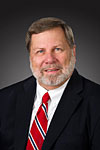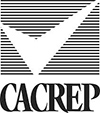UHV’s clinical mental health counseling degree earns national accreditation
A national accrediting body considered the gold standard in training future counselors recently accredited a second University of Houston-Victoria counselor education program.
The UHV Master of Education in clinical mental health counseling was accredited by the Council for Accreditation of Counseling & Related Educational Programs. The accreditation runs through Oct. 31, 2018.
UHV’s school counseling program also is CACREP accredited. UHV has the only CACREP-accredited degrees in the Coastal Bend and Greater Houston.
Students graduating from a CACREP-accredited program qualify to take the National Counselor Exam for Licensed Professional Counselors licensure and are afforded employment opportunities with national and federal agencies such as Veterans Affairs.
“This accreditation is significant because it opens a lot of doors for our students that otherwise wouldn’t be open to them,” said Jennifer Boswell, a UHV assistant professor of counseling. “Several agencies will only hire students who have graduated from 60-hour, clinical mental health counseling CACREP-accredited programs.”
The CACREP Board of Directors approved UHV’s accreditation at its July meeting after reviewing the university’s self-study and related documents. It capped the university’s year-long application process.
“This accreditation is not easy to achieve, so this is a notable achievement,” said Fred Litton, dean of the UHV School of Education, Health Professions & Human Development. “The efforts led by Dr. Boswell included contributions from many faculty and staff members. I’m proud of what our school has accomplished and what it will mean to students who complete our program.”
In fall 2014, UHV started a new 60-credit-hour master’s degree in clinical mental health counseling. It took the place of a 48-credit-hour community counseling program, although students who already had started the community counseling degree were permitted to finish it.
“Due to changes within the counseling profession and with our state counseling licensing board, everyone will be required to go to 60 credit hours in 2017,” Boswell said. “We decided to roll out our 60-hour clinical mental health counseling program early so our students would be ahead of the game.”
The community counseling degree was accredited by CACREP in 2010 and re-accredited in 2014, but the accrediting body required UHV to submit a new application for the 60-hour program. The accreditation didn’t automatically transfer over.
As part of the transition to the 60-hour program, UHV added new courses that aligned with current CACREP standards and requirements for education, skills and knowledge, Boswell said. In addition, some existing classes were updated to get them more in line with training and standards in the field.
“Going through accreditation had us constantly updating our programs and making sure our students have the best education in our field,” Boswell said. “It’s a lot of work, but it’s rewarding.”
One other advantage of being accredited is graduates can look for work outside of Texas, should they desire. When a student passes the National Counselor Exam he can practice in any U.S. state because the license is portable.
For more information about the counseling programs, contact UHV education recruitment coordinator Reese Alexander at alexanderjr@uhv.edu.
The University of Houston-Victoria, located in the heart of the Coastal Bend region since 1973 in Victoria, Texas, offers courses leading to more than 80 academic programs in the schools of Arts & Sciences; Business Administration; and Education, Health Professions & Human Development. UHV provides face-to-face classes at its Victoria campus, as well as an instructional site in Katy, Texas, and online classes that students can take from anywhere. UHV supports the American Association of State Colleges and Universities Opportunities for All initiative to increase awareness about state colleges and universities and the important role they have in providing a high-quality and accessible education to an increasingly diverse student population, as well as contributing to regional and state economic development.
Jeremy Shapiro
361-570-4350







